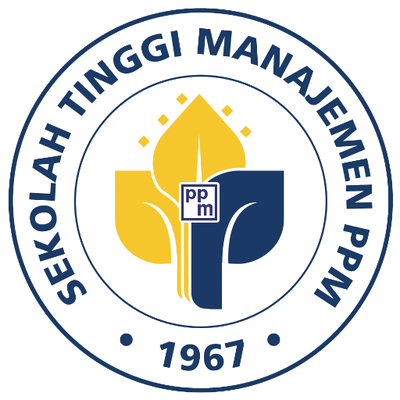Corporate Social Responsibility, Corporate Governance dan Manajemen Laba pada Perusahaan Manufaktur di Indonesia Tahun 2015-2019
Abstract
Keywords
Full Text:
PDF (Bahasa Indonesia)References
Ameer, B. (2013). Corporate Governance-Issues and Challenges in Pakistan. International Journal of Academic Research in Business and Social Sciences, 3(4).
Awards Methodology. (2018). CECT Sustainability Award. Retrieved from CECT: https://www.cectsustainabilityawards.com/awards2018.html
Branco, M. (2006). Corporate social responsibility and resource_based perspective. Journal of Business Ethics, 69, 111-132.
Cahya Lestari, K. &. (2019). Pengaruh Profitabilitas Terhadap Manajemen Laba (Studi Kasus Pada Bank Yang Terdaftar di BEI Tahun 2016-2018). ejournal umm, 2(1).
Calvo, S. G. (2015). Analysing the relationship between Corporate Social Responsibility, Discretionary Accruals and Real Earnings Management. Universiteit Van Amsterdam
Dechow, P. M. (1995). Detecting Earnings Management Author(s): Detecting Earnings Management. Source: The Accounting Review, 70(2).
Dechow, P. M. (2002). The Quality of Accruals and Earnings: The Role of Accrual Estimation Errors. The Accounting Review, 77.
Elkington, J. (1997). Cannibals with forks: The triple bottom line of 21st century business. Capstone/Oxford.
Hendriyeni, N. S. (2013, June 25). People, Planet, Profit, dan Akuntan. Retrieved from PPM Manajemen.
Iriyadi. (2019). Prevention of Earnings Management through Audit Committee and Audit Quality in the Award-Winning and Non-Winning Companies. Journal of Accounting Research, 2(2), 155-169.
Jensen, M. C. (1976). Theory of The Firm: Managerial Behavior, Agency Costs and Ownership Structure. Journal of Financial Economics, 3.
Jones, J. J. (1991). Earnings Management During Import Relief Investigations. Journal of Accounting Research, 29(2).
Kamran, &. S. (2014). The Impact of Corporate Governance and Ownership Structure on Earnings Management Practices: Evidence from Listed Companies in Pakistan. The Lahore Journal of Economics, 19(2).
Kim, Y. P. (2012). Is earnings quality associated with corporate social responsibility? Accounting Review, 87(3).
Kumala, R. &. (2020). Corporate social responsibility, family ownership and earnings management: the case of Indonesia. Social Responsibility Journal.
Kumparan. (2020, Jan 13). Beda Kasus Manipulasi Laporan Keuangan Jiwasraya dan Garuda Indonesia. Retrieved from Kumparan.com: https://kumparan.com/kumparanbisnis/beda-kasus-manipulasi-laporan-keuangan-jiwasraya-dan-garuda-indonesia-1sdRq1H9NPG/full
Leuz, C. N. (2002). Investor Protection and Earnings Management: An International Comparison.
Linthicum, C. R. (2010). Social responsibility and corporate reputation: The case of the Arthur Andersen Enron audit failure. Journal of Accounting and Public Policy,, 29(2).
Monks, R. A. (2003). Corporate Governance. Blackwell Publishing.
Negara, K. B. (2011). Peraturan Menteri Negara Badan Usaha Milik Negara Tentang Penerapan Tata Kelola Perusahaan Yang Baik (Good Corporate Governance) Pada Badan Usaha Milik Negara.
Orlitzky, M. S. (2003). Corporate social and financial performance: A meta-analysis. Organization Studies, 24(3).
Pratama, A. M. (2019). Laporan Keuangan Dianulir, Garuda Jadi Rugi? Retrieved from Kompas.Com.
Prior, D. S. (2008). Are socially responsible managers really ethical? Exploring the relationship between earnings management and corporate social responsibility. Corporate Governance: An International Review, 16(3).
Roychowdhury, S. (2006). Earnings management through real activities manipulation. Journal of Accounting and Economics, 42(3), 335-370.
Sanjaya, I. P. (2008). Auditor Eksternal, Komite Audit, dan Manajemen Laba. The Indonesian Journal of Accounting Research (IJAR).
Subekti, I. W. (2010). The Real and Accruals Earnings Management: Satu Perspektif Dari Teori Prospek. Simposium Nasional Akuntansi XIII Purwokerto.
Sutedi, A. (2011). Good Corporate Governance. Sinar Grafika.
Tunggal, A. W. (2013). Internal Audit dan Good Corporate Governance. Erlangga.
Valencia, C. (2018). IICD CG Award 2018 Bentuk Konsistensi Mendorong Praktik Terbaik dari GCG di Indonesia. Retrieved from kontan.co.id.
Wikipedia. (2019). Empat Besar (firma audit). Retrieved from Wikipedia: https://id.wikipedia.org/wiki/Empat_Besar_(firma_audit)
DOI: https://doi.org/10.34149/jmbr.v18i2.273
Indexing
JMBR Editorial Office: PPM School of Management, Jl. Menteng Raya 9-19 Jakarta 10340 Phone: 021-2300313 ext 2354

License
JMBR is using CC BY License
This work is licensed under a Creative Commons Attribution 4.0 International License.


















